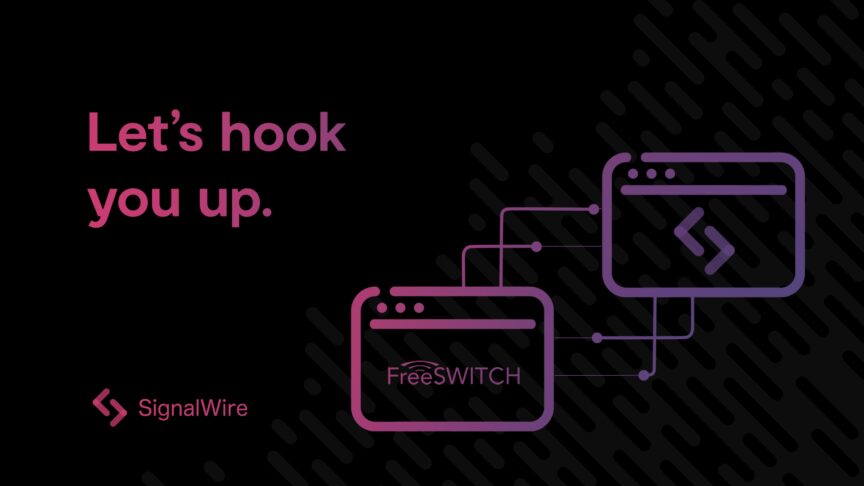Moving from on-premises communications to cloud communication can introduce new risks, but most “cloud risks” are really questions about resilience, compliance, and control. This post explains what cloud communication is, then walks through common concerns, including disaster recovery, compliance, data sovereignty, scalability, reliability, customization, and cost. It also outlines how cloud providers use redundant data centers, encryption, monitoring, and operational processes to improve availability and reduce the operational burden of running communications infrastructure in-house.
With its promises of scalability, cost-efficiency, and enhanced performance, migrating from on-premises infrastructure to the cloud is a compelling proposition. If your business is considering the move from on-prem solutions to cloud based communication, concerns can arise when contemplating the risks, as with any major technological shift.
In this post, we'll address some common reasons you might be apprehensive about moving to the cloud. From reliability anxieties to data sovereignty concerns, we'll explore each of these risks and shed some light on the opportunities that await those who dare to embrace the cloud. While the transition may present its share of complexities, the cloud offers a gateway to innovation and unparalleled growth.
What is cloud communication?
Cloud communication is the practice of using internet-based technologies to facilitate seamless real-time interactions. Unlike traditional communication systems that rely on on-premises hardware and infrastructure, cloud communication harnesses the power of the internet to deliver voice, video, messaging, and data services.
By leveraging scalable and flexible cloud platforms, users can access communication tools and services from virtually anywhere for more streamlined business operations. Cloud communication solutions encompass a wide range of applications, including VoIP, video conferencing, instant messaging, and APIs that integrate into various applications.
Common cloud concerns
Disaster Recovery
You may be considering the ability to mitigate risk and recover in the event of a disaster when an application uses cloud services over locally hosted infrastructure.
Cloud providers like SignalWire have robust disaster recovery mechanisms in place. By operating multiple redundant data centers globally, as opposed to local servers, your application can become more reliable than before. By leveraging these data centers, SignalWire ensures high availability and reliability.
Account information and assets are continuously backed up, and all backups are encrypted both in transit and at rest, providing a secure and resilient environment for data protection. Through preemptive measures such as advanced dev-ops monitoring, and mitigation measures led by our around-the-clock support team, you can rest assured that you’re in good hands in case any issues arise.
Compliance
Businesses in highly-regulated industries may be concerned about compliance requirements when moving to the cloud.
Keeping up with telecom regulations can be overwhelming for anyone. Between the Campaign Registry, toll-free or short code requirements, and even voice regulations such as STIR/SHAKEN, there are a lot of hoops to jump through in the current telecom landscape. Depending on your industry, you might also have to consider HIPAA, GDPR, CCPA, or other requirements.
That’s why SignalWire has dedicated carrier operations, support, and success teams that can help guide you through the most up-to-date policies and best practices for your needs. SignalWire has been at the forefront of each of these telecom policies as they have been implemented, and is also committed to complying with applicable legal, industry, and regulatory requirements, so you don’t have to worry about it.
Data Sovereignty
When sensitive information is stored in the cloud, you might have some concerns about the safety of your data.
SignalWire takes security incredibly seriously, especially when it comes to complying with the regulations listed above. Measures are in place to keep data safe, such as encryption in transit, stringent access management, and ongoing security auditing. SignalWire's dedication to privacy and data protection enables you to make your move to the cloud while adhering to necessary compliance standards and protecting your data.
By leveraging commodity cloud infrastructure providers, SignalWire ensures compliance with industry best practices and standards. The encryption of data at rest, geographical distribution, and adherence to privacy policies allows you to maintain control over your data while enjoying the benefits of the cloud.
Security is prioritized at every level of infrastructure, including encryption protocols such as TLS, HTTPS, and SRTP/DTLS to protect communication data. Internal security designs, regular vulnerability scans, third-party security audits, and ongoing employee training on information security help ensure the integrity of all data that is transmitted and stored within the cloud.
Scalability
Scaling your communication infrastructure according to changing needs is essential.
Scalability is one of the greatest perks of migrating to a cloud communication solution. With the power of the internet, the ability to adjust capacity in real-time without any CPU or memory considerations becomes much simpler.
This scalability allows you to respond quickly to customer demands and accommodate seasonal spikes without the need for additional hardware or software investments. Whether you’re ramping up multiple congruent calls for your dialer, or sending messages out at your maximum Campaign Registry throughput, you can spend more time on business considerations and less on worrying about infrastructure capabilities.
Reliability
You might find yourself questioning the reliability of cloud services compared to on-premises solutions.
Cloud providers such as SignalWire prioritize reliability by implementing redundant infrastructure and distributed data centers. This approach ensures high availability even during unexpected downtime or maintenance windows. On-premises servers, on the other hand, are actually more vulnerable to failures due to hardware or software issues. Take a look at SignalWire’s Service Level Agreement for more details on the performance and uptime that is offered.
Customization
Will you lose customization options when migrating to the cloud?
We can’t speak for the customizability of all cloud based communication, but one of SignalWire’s core missions is to make FreeSWITCH capabilities more accessible to developers. This is done through a variety of APIs, offered in numerous SDKs, so you’re sure to find a solution that can be incorporated into your current stack. By eliminating the need for manual configuration of modules in a Linux environment, you can allocate more time to developing within your preferred environment and further disrupting your industry.
Cost
Cost concerns are common when considering a move to the cloud, as there are upfront expenses associated with subscription models and ongoing usage.
By eliminating the need for physical servers, hardware maintenance, and software licenses, in most cases, you can save significantly by moving to a cloud service. With pay-as-you-go models, you can purchase only what you need.
Though there can be upfront costs associated with moving from on-prem infrastructure to the cloud, such as planning, training, or data transfers, it’s an investment that pays off over time. The long-term benefits, such as reduced maintenance expenses and enhanced scalability often outweigh the initial investment, making the move financially advantageous in the long run.
Many of the risks you may be considering are concerns that can actually be shifted to a third-party provider, allowing you to focus on running your business. If you're considering a move to the cloud or have any questions about SignalWire, our Community Discord is a great resource to connect with our team. You can also reach out to sales@signalwire.com for inquiries about pricing, specific products, or FreeSWITCH Enterprise.
Frequently Asked Questions
What is cloud communication?
Cloud communication uses internet-based platforms to deliver voice, video, messaging, and data services without relying on on-premises hardware, allowing teams to access communications capabilities from virtually anywhere.
How does cloud communication support disaster recovery?
Cloud providers typically run redundant, geographically distributed data centers and maintain backup and monitoring practices designed to keep services available during failures, rather than relying on a single local server environment.
What compliance issues come up when moving communications to the cloud?
Regulated industries may need to account for telecom policy requirements and data protection obligations, depending on use case and region, which can include messaging registration, voice policy requirements, and privacy regulations.
What is data sovereignty in cloud communications?
Data sovereignty refers to concerns about where sensitive data is stored and processed, and whether the storage location and access controls align with legal, regulatory, and organizational requirements.
Is cloud communication more reliable than on-premises infrastructure?
Cloud providers aim to improve reliability through redundancy and distributed infrastructure, while on-premises deployments can be more exposed to hardware failure and maintenance risk.


